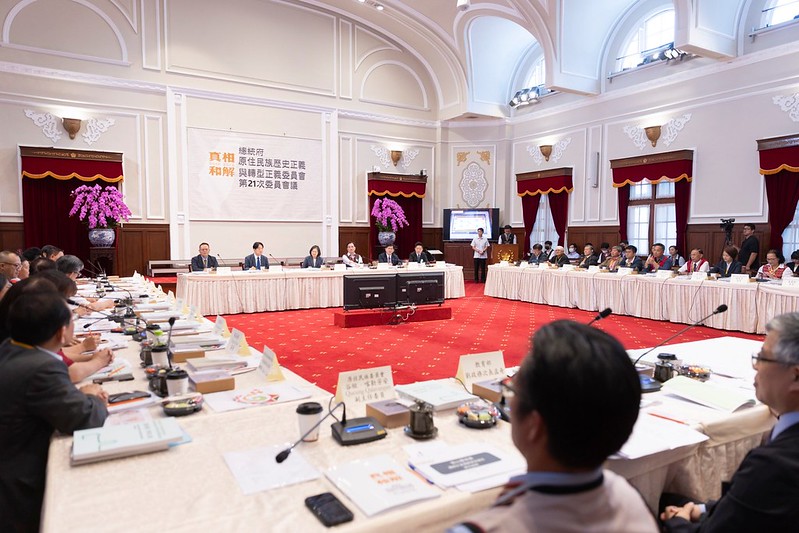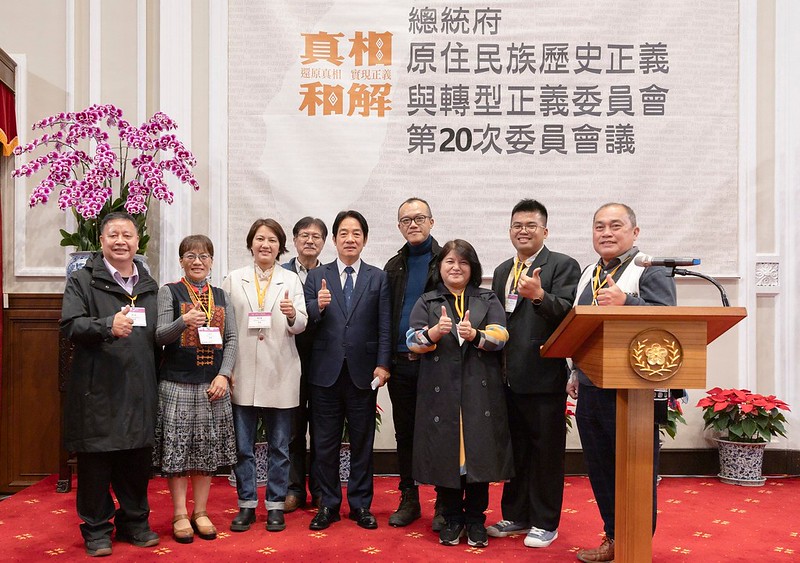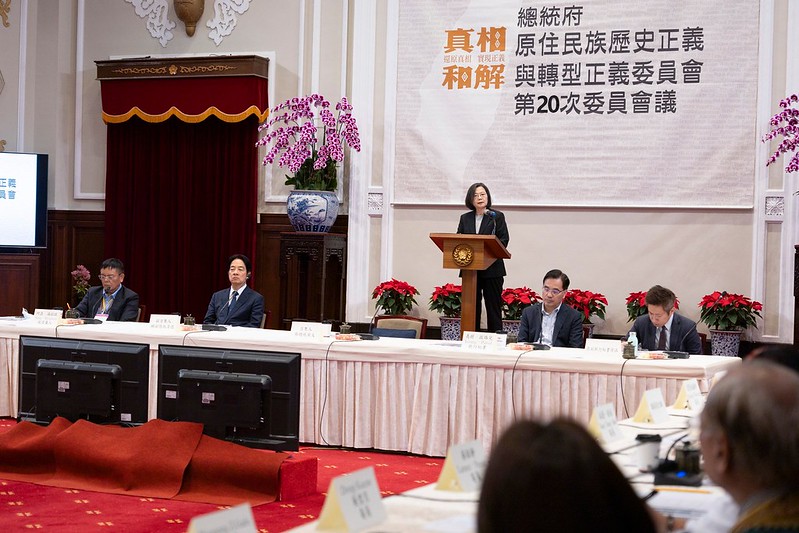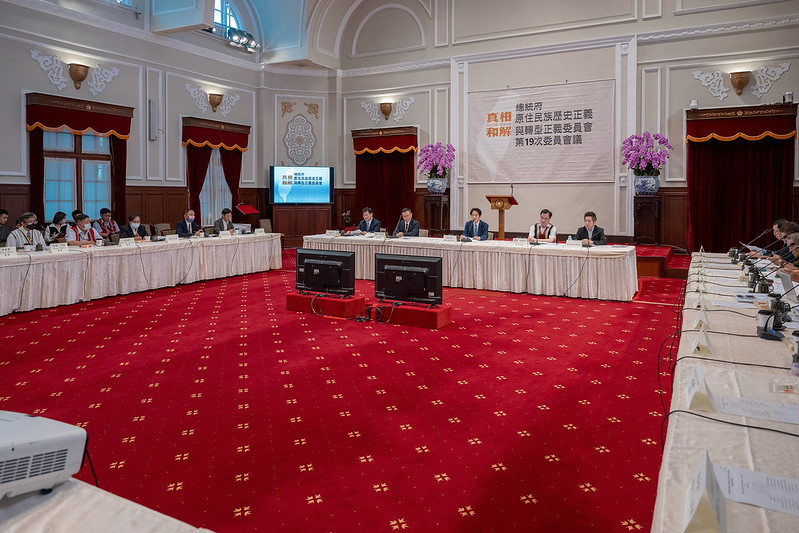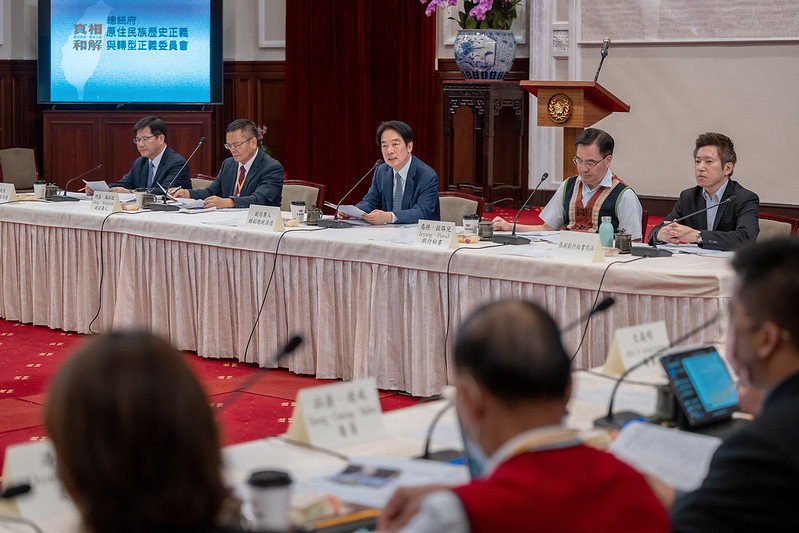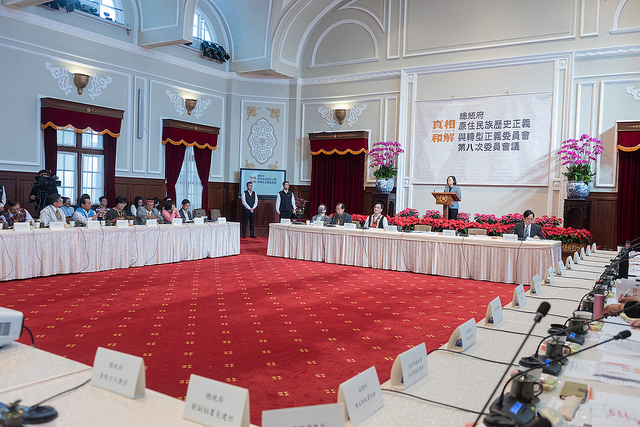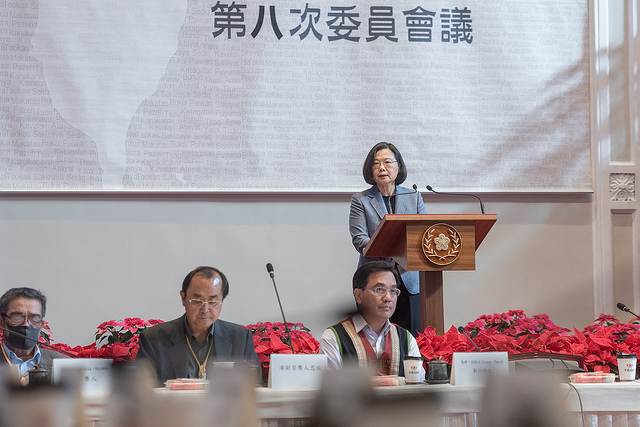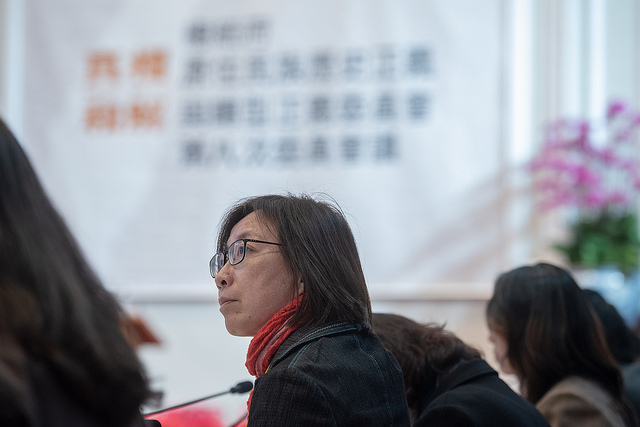News & activities
 News releases
News releases
On the afternoon of December 21, President Tsai Ing-wen presided over the eighth meeting of the Presidential Office Indigenous Historical Justice and Transitional Justice Committee. She stated that after a full year's hard work, negotiations on issues involving Asia Cement Corporation (ACC) have made progress. She also emphasized that by achieving transitional justice, Taiwan can become even more democratic, free, equal, and tolerant, and become a nation that truly embraces transitional justice.
The following is a translation of the president's remarks:
Today is the eighth meeting of the Presidential Office Indigenous Historical Justice and Transitional Justice Committee ("the Committee"), and the second anniversary of its founding.
I know that some of our indigenous friends wonder whether, with only eight meetings in two years, transitional justice is proceeding too slowly. But I must say that between Committee meetings every three months, Committee members have spent a great deal of time gathering opinions within their communities. The Committee's five thematic subcommittees and staff have also started work in many areas.
As a result of these efforts, we have held broader discussions about issues of historical justice and transitional justice for indigenous peoples over the past two years, and have gradually come to see results.
For example, with the unanimous support of Committee members, we initiated negotiations over ACC-related issues at the end of last year. After a full year's hard work, the negotiations have made progress.
There have been severe conflicts between the Truku people, the ACC, and the government. Now, not only can we sit together and talk, we are focused on issues such as improving residential safety for local residents, investigating the truth behind the land disputes, and thinking about future transformation of mining areas. This is the first time such discussions have been held in 40 years.
In a little while we will hear reports from the Ministry of Economic Affairs and the Council of Indigenous Peoples on the progress in these negotiations over the past year.
We have also arranged for the Subcommittee on History to present a report on the most recent phase of its work. Subcommittee Convener Wusai Lafin (林素珍) will explain to us the results of their analysis of textbooks and school curriculum guidelines at different stages following World War II.
The review of the new curriculum guidelines for 12-year Basic Education is already nearing its end. The new guidelines include more about indigenous peoples' historical and cultural perspectives, and more attention is devoted to issues such as transitional justice. After the report from the Subcommittee on History, we will hear statements from the Ministry of Education.
I know that educational issues are important to many Committee members. Just last week, Committee Deputy Conveners Pasuya Poiconu (浦忠成) and Obay Ataw Hayawan (夏錦龍) presided over a special meeting about indigenous education. Today marks the first time that Minister of Education Yeh Jiunn-rong (葉俊榮) has attended a Committee meeting, and we will have an in-depth discussion on several proposals related to the Ministry of Education.
Committee discourse has brought about important changes, both for individual cases of widespread social concern and long-term education policy efforts. These results were made possible by the related agencies and all of you here today.
Over the past several days, Taiwan society has continued to discuss issues surrounding transitional justice. Through these discussions we have come to realize that our society has many different opinions regarding transitional justice even to this day.
However, I want to once again emphasize that transitional justice cannot be decided by any one individual or agency. All of society must work together to face up to and achieve transitional justice.
I like the following metaphor for transitional justice: Although it is more difficult for 100 people to take one step at the same time than for one person to take 100 steps, it is also more meaningful.
I believe that in clarifying the historical truth and sincerely seeking to achieve cross-ethnic and cross-generational reconciliation, we must undertake the more difficult task.
We are willing to listen to different opinions, and promote mutual communication and understanding. For example, over the past year the Subcommittee on Reconciliation has held more than 60 seminars around the country, a praiseworthy approach.
In building a platform for communication and dialogue, we are not merely paying lip service to the idea of transitional justice. We are determined to make Taiwan into a country that truly embraces transitional justice. Achieving transitional justice can make us even more democratic, free, equal, and tolerant.
This is my attitude toward transitional justice. I hope we will all continue our joint efforts. Thank you.
Afterward, President Tsai listened to an annual progress report on the formal three-party negotiations regarding the mining at the ACC's Xincheng Mountain Mine. She also exchanged views with Committee members on proposals regarding indigenous education and other issues.
